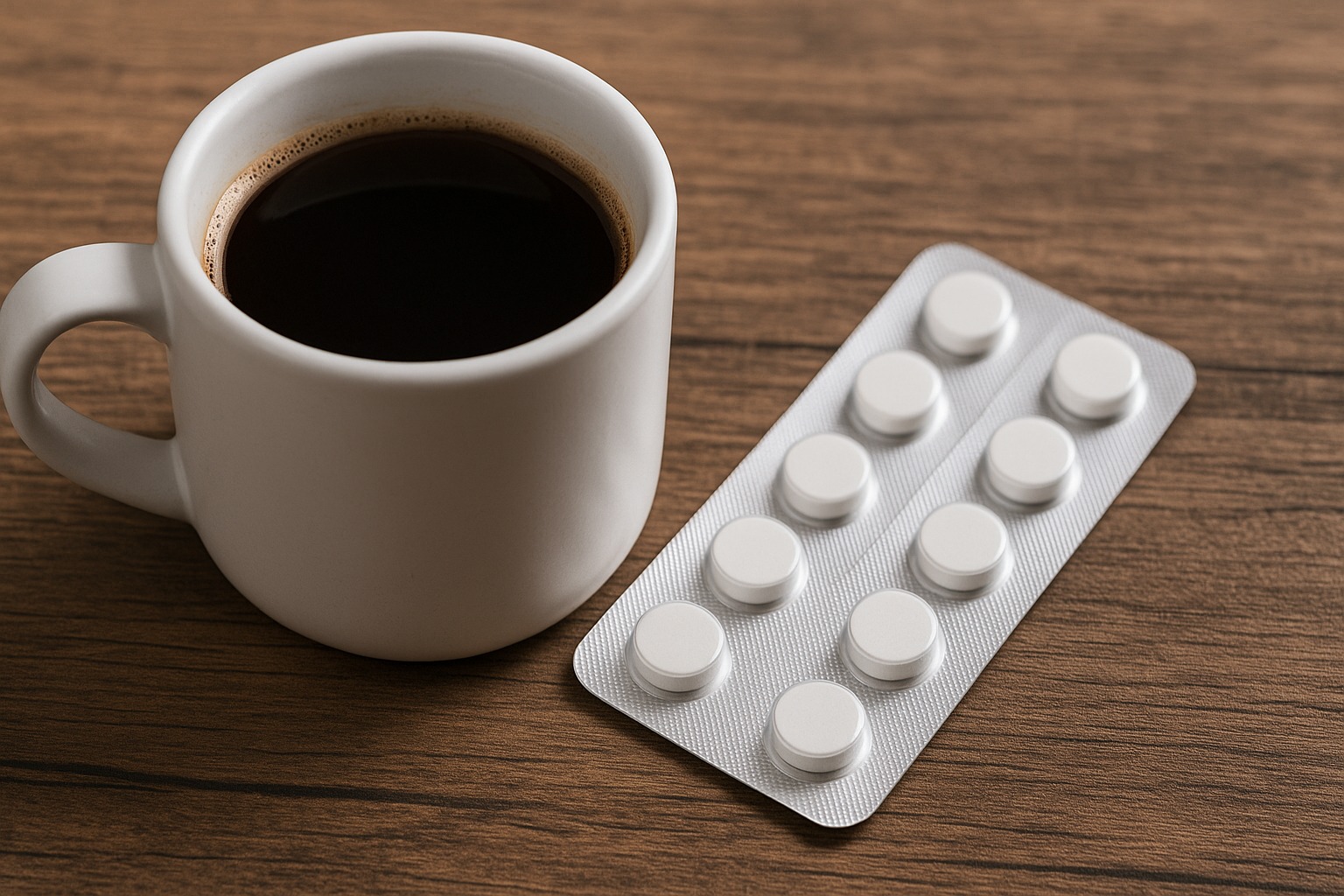
For millions of people, the day does not truly begin until a mug of coffee is in hand. The ritual feels harmless, a reliable jolt of energy that sets the tone for the morning.
Yet pharmacists and physicians caution that the same caffeine that sharpens focus can quietly interfere with important medications.
Research has linked coffee to reduced absorption of thyroid drugs, lower effectiveness of osteoporosis treatments, and unpredictable spikes in the levels of antidepressants and antipsychotics.
Heart specialists point out that caffeine can raise blood pressure for hours, sometimes counteracting the very pills prescribed to control it. Even antibiotics are under the microscope, with new studies showing that caffeine may alter how bacteria respond to treatment.
“People often think of coffee as a beverage, but it is also a powerful chemical,” explains Dipa Kamdar, senior lecturer in pharmacy practice at Kingston University, writing in The Conversation.
The evidence is building, and the message is simple: when medicine and coffee meet too closely, patients may pay the price.
Key Takeaways
- Take thyroid pills like levothyroxine only with water, never with coffee.
- Wait at least 30 to 60 minutes after the medicine before your first cup.
- Osteoporosis drugs such as alendronate lose more than half their strength if taken with coffee.
- Coffee speeds digestion, which gives many pills less time to work.
- A small change in timing can keep your medicine effective.
Coffee and the Problem of Drug Absorption

Doctors have long known that coffee can change how some medicines move through the body. One of the clearest examples is levothyroxine, used for thyroid disease.
Research in Thyroid showed that drinking espresso with the pill reduced absorption by almost 30 percent, leading to lower hormone levels in patients.
The American Thyroid Association explains that caffeine speeds gut motility and binds in the stomach, giving the drug less time to be absorbed.
Another group affected is osteoporosis medicines. The U.S. Food and Drug Administration warns that alendronate, a common bone drug, loses about 60 percent of its effectiveness if taken with coffee instead of water.
The problem is not limited to one drug. Coffee affects the way tablets dissolve, the way the stomach empties, and the way the gut walls allow drugs in.
That means the first sip of the day can quietly undo the intended strength of treatments for thyroid disease, bone health, and more.
Doctors advise taking these medicines with plain water on an empty stomach and waiting at least half an hour before coffee.
Antibiotics and the New Findings About Coffee
A new study published in PLOS Biology in July 2025 revealed that caffeine triggers changes in Escherichia coli bacteria.
The University of Tübingen found that caffeine activates a regulator protein called Rob, which in turn lowers levels of a transport channel known as OmpF.
That change reduces the ability of some antibiotics, including ciprofloxacin and amoxicillin, to enter the bacterial cell. Christoph Binsfeld, a microbiologist at Würzburg, explained that caffeine “triggers a cascade of events” leading to reduced antibiotic uptake.
Insight
These results do not prove that drinking coffee during a course of antibiotics weakens treatment in people.
The study was in the lab, and the doses may not reflect real life. Still, it highlights an overlooked dimension of low-level antibiotic resistance.
Even small shifts in how bacteria manage drug entry can give them survival advantages.
Doctors are not telling patients to stop coffee during antibiotics yet, but they emphasize strict adherence to dosing schedules and consultation if treatment fails.
We also have to add that other beverages high in caffeine, such as the Monster Energy Drink or the Starbucks Frappuccino, may cause even bigger issues as they contain a high amount of sugar, which could disrupt the immune system.
What Doctors Want Patients to Know
Medical groups and regulators have issued clear rules.
The American Thyroid Association says patients on levothyroxine should take tablets with water and wait 30 to 60 minutes before coffee.
Psychiatrists emphasize consistency: if a patient drinks two cups of coffee every morning, clinicians need to know.
Sudden changes can alter clozapine levels by almost half.
Cardiologists also remind patients that caffeine raises blood pressure and blocks adenosine, which is why caffeine must be avoided before certain stress tests.
Insight
The advice is not to abandon coffee, but to treat it as part of a medical routine. Doctors suggest:
- Take thyroid and osteoporosis drugs first thing with water, then delay coffee.
- Tell psychiatrists and cardiologists how much caffeine you consume.
- Watch for restlessness, palpitations, or poor sleep if on antidepressants or antipsychotics.
- During antibiotics, follow the full regimen and consult a doctor if recovery stalls.
Coffee remains a daily comfort, but evidence shows it is also a chemical actor with real influence over treatment outcomes.
Physicians stress that a short conversation about caffeine can prevent weeks of side effects or reduced effectiveness.
If you are considering tea as an alternative, remember it also contains caffeine, only in smaller amounts than coffee.
Conclusion
Doctors agree that coffee itself is not the enemy. The concern lies in how easily a routine habit can alter the way medicines behave inside the body.
As you can see, caffeine can tilt the balance enough to reduce effectiveness or trigger side effects.
Pharmacists emphasize that simple steps make the difference. Swallow tablets with water, give the body time before drinking coffee, and keep your healthcare provider informed about your caffeine intake.
The details may seem small, but the impact can be major for patients relying on consistent treatment.
















